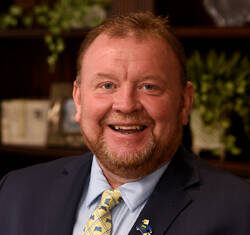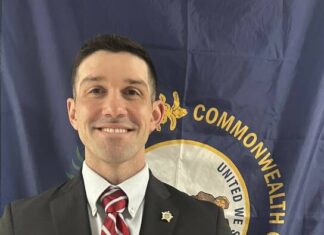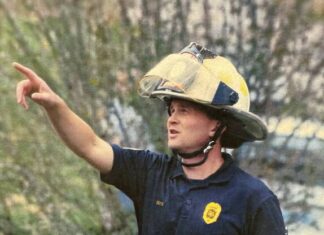LOUISA, Ky. (AP) — When someone says “maple syrup,” what place comes to mind? Vermont? Or maybe even Canada? But probably not Eastern Kentucky.
Until now.
“Most people think you can’t produce syrup in Kentucky but I do,” said Keith Moore of Savage Farms in Louisa. “It’s really delicious, too . I’ve had some informal taste tests and people can’t tell the difference between ours and Vermont.”
Moore is the president of the newly formed Kentucky Maple Syrup Association, which encourages its two dozen or so members (and would-be sugar makers) in their endeavors.
While maple syrup production isn’t really new to the state, it hasn’t been seen as a cash crop.
But with the help of University of Kentucky extension agents and other farmers, many in Eastern Kentucky in particular are realizing they could be sitting on a maple-flavored gold mine.
Moore, who is retired from the Kentucky State Police, had always made maple syrup as a hobby, just for family. Then he and his son bought farms in Lawrence County and realized they had thousands of maple trees on it. He began researching how to make syrup on a large scale, traveling to Vermont three times to consult experts there.
“Most people have no idea what resource they have, until they start looking,” he said. “This thing is snowballing and going crazy.”
Now, he’s tapping 1,400 trees, which will produce thousands of gallons of sap. He collects it in miles of tubing, and uses a high-tech reverse osmosis system to draw out most of the water before boiling the sap down into syrup.
He could sell every drop of it just like that at local farmers’ markets, he said, but he also likes to do a value-added product: Moore ages syrup in a freshly dumped Woodford Reserve bourbon barrel for five months, the processes the liquid again before bottling. Those blue-wax-topped bottles will sell for $22 apiece. And he will have no trouble selling it all, he said.
And his wife has branched out, making maple products including cinnamon maple butter that flies off the table at the market, too, he said.
In 2016, Letcher County agriculture extension agent Shad Baker and other agents organized a maple syrup school to help participants learn the process.
Farmers can get into making syrup for less than $100 but large-scale operations could have $20,000 or more invested, Baker said. The return on that investment is quick: typically within two years, farmers say.
Making syrup “was always a thing, especially years ago during rations on sugar during World War II. But when sugar prices dropped after World War II, demand plummeted,” Baker said.
The resurgence in interest began about 2010, he said. All that’s really required are mature maple trees and the right kind of weather: nights below freezing, days above.
“It’s very simple; it’s not rocket science at all. This winter in particular has been a banner year, the most production they’ve had recently. The sap is really flowing,” he said.
And he expects to see much more, based on the increased attendance at the second syrup school last year.
“We do see a bigger market. UK Extension has worked very hard to promote this. … The Kentucky Department of Agriculture, along with some other ag promoters, is getting it added to the state fair, so there’s a category for maple syrup, and that would be totally new.”
One of those who came to that first syrup school was Seth Long of SouthDown Farm in Ermine. Long and his wife Cheryl began making maple syrup a few years earlier to show their kids it could be done. They started with a very rudimentary system, using basic hardware to tap trees and milk jugs to catch the sap.
“That works but it’s not ideal,” Seth Long said.
At the syrup school, they met Moore and others, “people actually doing this commercially, not just as a hobby,” Long said.
Now they’ve upgraded SouthDown to a plastic tubing system that links up to 30 trees together, collecting sap and using gravity to pull it out of the trees and into storage tanks. They added an evaporator. And they got a $5,000 small-farmer grant from Kentucky State University to build a sugar shack for boiling sap down to syrup.
“Our production per tap has increased over 300 percent,” Long said. “We’re growing it year by year. Last year 95 taps, 200 this year, next year 300. … So many trees and so little time.”
Like many farms in Eastern Kentucky, Long said his property has many maple trees, which are the most common trees in Kentucky along with poplar. That’s because once land has been cut for timber or strip mined, maples and poplars are the first trees to recolonize.
“One of our goals at SouthDown and I know Keith shares it and the Kentucky Maple Syrup Association … to put maple syrup on the map in the state of Kentucky,” Long said. “We want it to be recognized as a possibility. … In Eastern Kentucky, there are no silver bullets that will fix what we’re facing from this changing economy.
“But I call this, when I talk to people, is a silver BB.”
And Long thinks that, given Kentucky’s long and variable winter, the syrup season could actually be much longer here than in Vermont, where they typically have only six weeks.
“We’re really trying to tap an untapped resource, and I use that pun intentionally,” he said. “It’s profitable; we can do this.”
If you go
Savage Farms in Louisa’s second annual Maple Festival
When: 9 a.m., March 31
Where: 10251 North Highway 3, Louisa, Ky 41230.
There will be a pancake breakfast and a tour of the maple farm. Like the farm’s Facebook page for updates.
———
Information from: Lexington Herald-Leader, http://www.kentucky.com
Keith Moore watches over some of the boiling sap he uses to make maple syrup on his Lawrence County Savage Farms on Feb. 14, 2018 in Louisa, Ky. This farm has over 6 miles of tubing connecting more than 600 tapped maple trees. Moore hopes to produce around 1000 bottles of regular and 1000 bottles of bourbon-barrel aged maple syrup this season. (Charles Bertram/Lexington Herald-Leader via AP)
Keith Moore checks some of the more than 6 miles of sap collecting lines in the woods near his Lawrence County Savage Farms on Feb. 14, 2018 in Louisa, Ky. This farm has over 6 miles of tubing connecting more than 600 tapped maple trees. Moore hopes to produce around 1000 bottles of regular and 1000 bottles of bourbon-barrel aged maple syrup this season. (Charles Bertram/Lexington Herald-Leader via AP)






